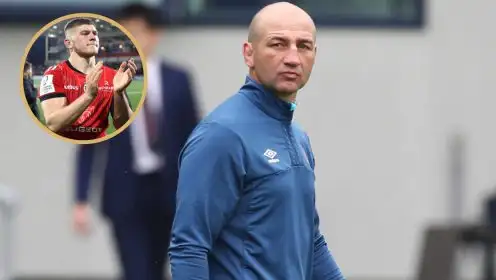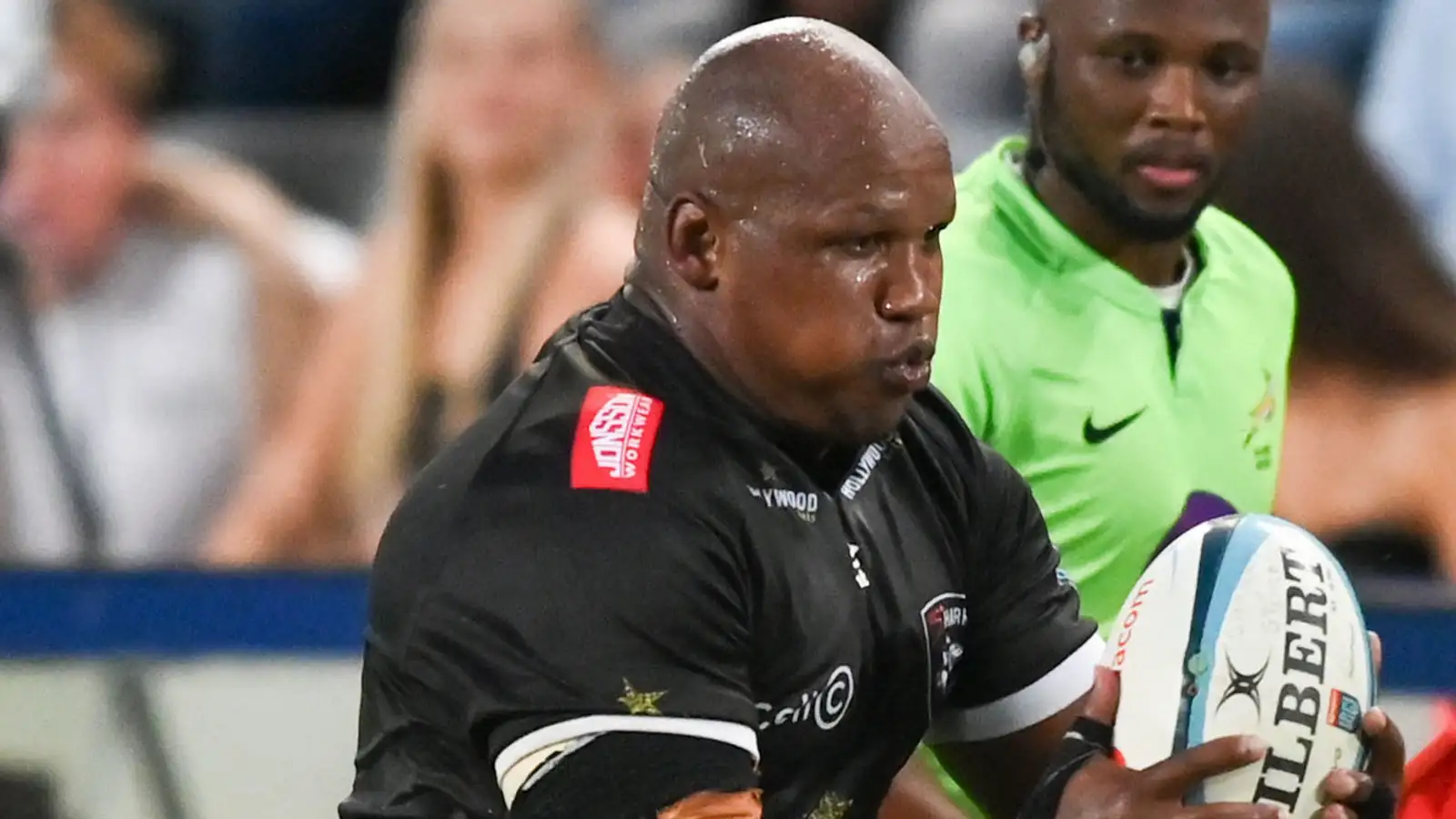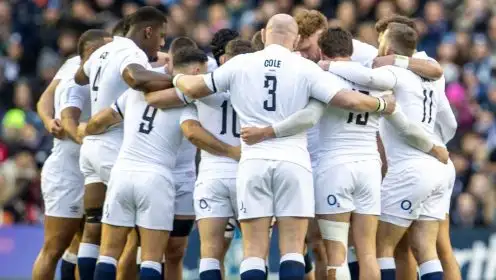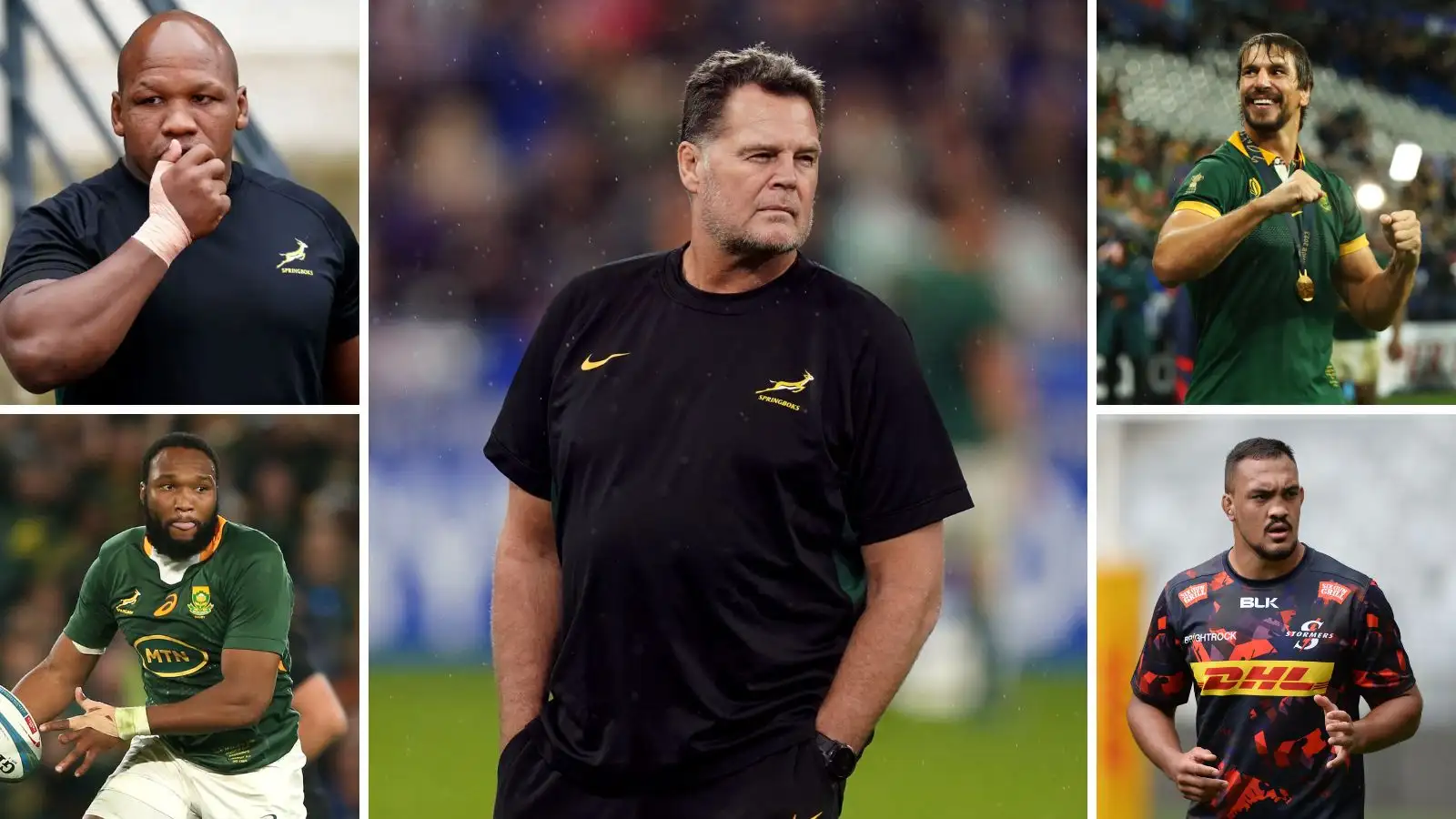Loose Pass: Steve Borthwick needs more time, Springboks for hire and the irony of Bongi Mbonambi’s rant
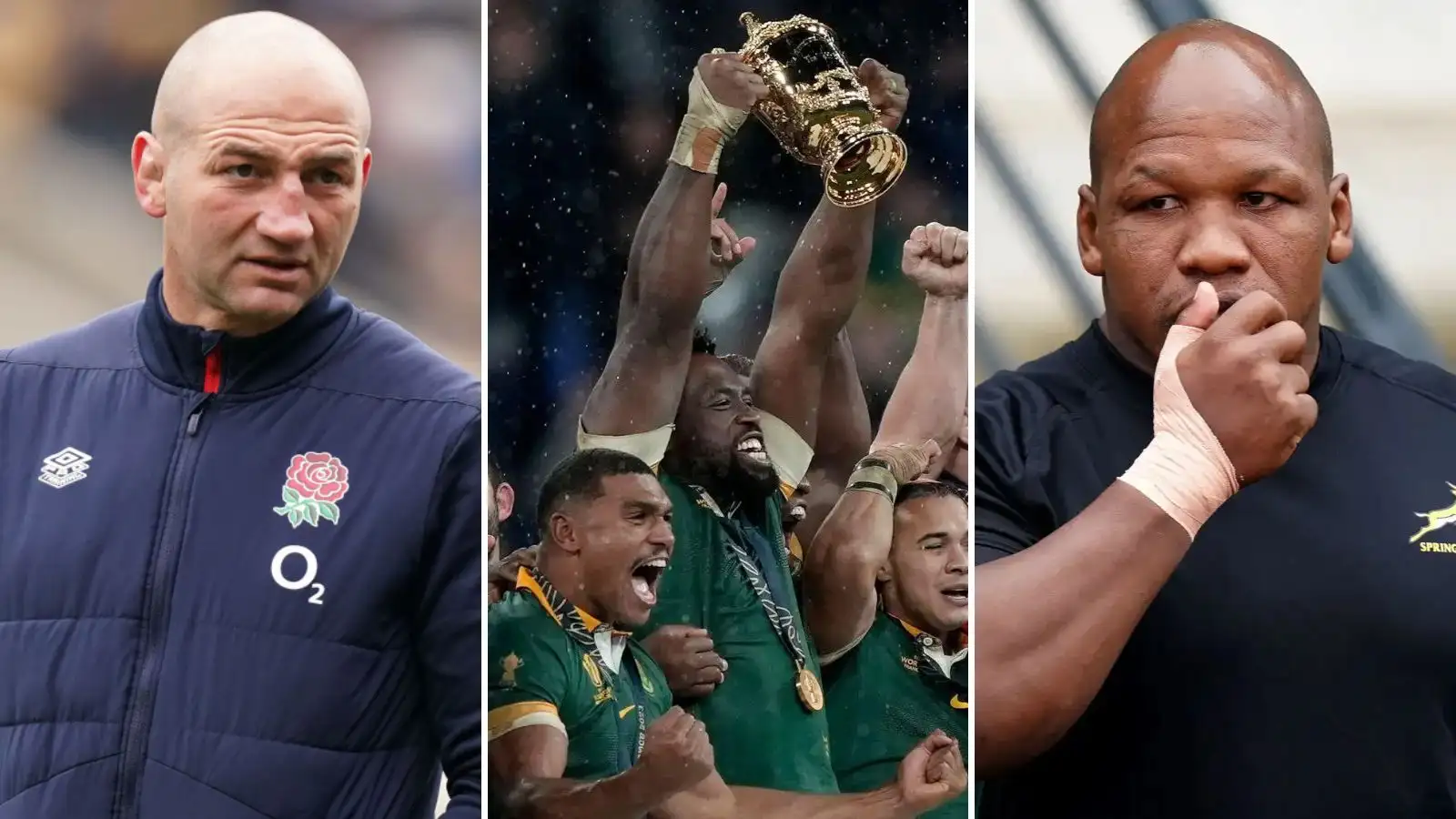
Steve Borthwick, Siya Kolisi and Bongi Mbonambi in split image.
This week we will mostly be concerning ourselves with the gathering gloom in England, the costs of hosting Tests in South Africa, the irony of the Bongi Mbonambi rant and how people thrive in New Zealand…
Borthwick needs more time
Brian Moore, Ben Youngs, Jonny May, Sir Clive Woodward, Andy Goode… The list of people sharpening knives – if not virtually sticking them – in the backs of the English coaching staff is getting longer by the day. Steve Borthwick‘s name naturally appears more than most as the head coach, but it’s clearly not just him in the firing line. The problem is, however, he’s at the front of it.
If it were just pundits gleefully kicking the team while down, it would not be so serious. But when details of training sessions are beginning to leak there’s a major problem.
Is it really Borthwick’s problem though or is it simply the problem he has inherited? Is it simply a part of the process that the current team is going through? Is it simply the frustration of the past few years boiling over into impatience?
‘International coach takes over ailing team and starts the process by focussing on defence’ is hardly outrage-inducing stuff in normal circumstances. Especially when there’s another three and a half years to the World Cup.
But these are not normal circumstances. England have been under-performing – mostly – for yonks, with a generation of players rarely showing their full potential for any team other than their club. Marcus Smith is the poster boy for talents being neglected, or discouraged, or blunted by a restrictive game-plan, but think also of the outcasted Zach Mercer.
Think also of the astounding number of handling errors England produced against Scotland. It did not look like a team that was on the same page on attack, nor did it look like one that had honed and sharpened the attacking structures during the build-up. The accusation that the team is training nothing but defence is one that has a weight of evidence behind it.
It’s a curse of the Northern Hemisphere coach that the first matches of a new tenure are almost always a Six Nations. Occasionally, he might catch a break and get the November or June Tests, but that’s the exception. In the Southern Hemisphere, new coaches generally have the June Tests, against tired and jet-lagged teams, to at least experiment without too much significant judgement before the Rugby Championship kicks off.
Borthwick has not had that luxury. He has, however, overseen a relatively successful World Cup campaign with not much run-up time, having taken over a side that looked devoid of identity. He has now got what looks to be a good coaching set-up in place. He has had to restart the World Cup preparation cycle for this Six Nations, and is, as all England coaches are, being weighed against both the weight of expectation and the pressure of the build-up in impatience. Injuries have been disruptive. Pragmatism is virtually guaranteed.
English fans and pundits have a right to be impatient and fed up, given what they’ve been served up over the past few years. But Borthwick needs more time, more time to play games which are not a part of major tournaments, more time to develop concepts in his squad without the noise of the club season and post-World Cup drop-off in the background, and more time to simply get to know the emerging players better. How he uses the June and November windows will be a lot more instructive than this Six Nations.
The brand is not for sale, they said
When the news broke a couple of weeks ago that South African rugby was about to get a big injection of private equity cash, the concern was enough that CEO Rian Oberholzer felt compelled to address fan concerns in an open letter in which he insisted: “The Springboks are not being sold – not now and not ever.”
And sold, no, but it seems they are very much for hire. Host unions are being asked to pay huge fees to host Springbok Test matches, costs which, you’d have to think would be likely to be passed on to none other than those adoring fans (as well as those ever-liquid sponsors).
But the unions are angry at the price hikes – some are said to be seeking legal opinion – and although there are no murmurs of discontent from fans yet, not all the ticket prices are out yet either.
Private equity sits uneasily with sport. The simple business case of being an efficient money-making entity has its merits, but the balance needs to remain when you are dealing with cultural and national heritage. The Springboks are a team, not a brand and need to be treated primarily as such. This is a storyline to watch over the next few months.
Mbonambi’s sense of irony
😏 "You just got a scrum.. and you have to scrum against us.."
Bongi Mbonambi and Ox Nche on *𝙩𝙝𝙖𝙩 match against England and 'plastic energy'..
🎬 #ChasingTheSun2 will air on @MNet at 8PM every Sunday, starting March 24. pic.twitter.com/5j50lRwXGp
— SuperSport Rugby (@SSRugby) March 3, 2024
Sadly the reported comments and the events were not chronologically as juxtaposed as they were when appearing in the media, but we found it more than a little amusing that we had this one soundbite from Bongi Mbonambi: “It’s plastic energy when you try to get energy by just shouting,” right next to the report on his being admonished for trying to win a penalty by shouting at referee Aimee Theron-Barrett at a breakdown.
The quote was filmed during the World Cup and was released as a part of the promotional guff for the Chasing the Sun 2 documentary about South Africa’s successful World Cup defence. The shout was in a game. But you know. Rocks, greenhouses…
Patchell’s pass highlight reel should make a few people think
Fair to say that Welsh fly-half Rhys Patchell has been welcomed in New Zealand and is enjoying himself. He also looks already to be a far, far better player for his time there than in his last years in Wales.
This column has touched upon this before, but while so many European teams celebrate the influence of incoming Kiwis, Australians and South Africans, it’s so rare to see Europeans making the trip the other way.
Local eligibility regulations don’t help, but a few months in Auckland was an integral part of Joe Marchant’s development while Freddie Michalak became a far more rounded and mentally stronger player for his time in South Africa. A few more players making those sorts of trips would be enriching for the game at both ends of the world.
READ MORE: Ex-Wales back seals move to Super Rugby giants after All Blacks star’s injury
